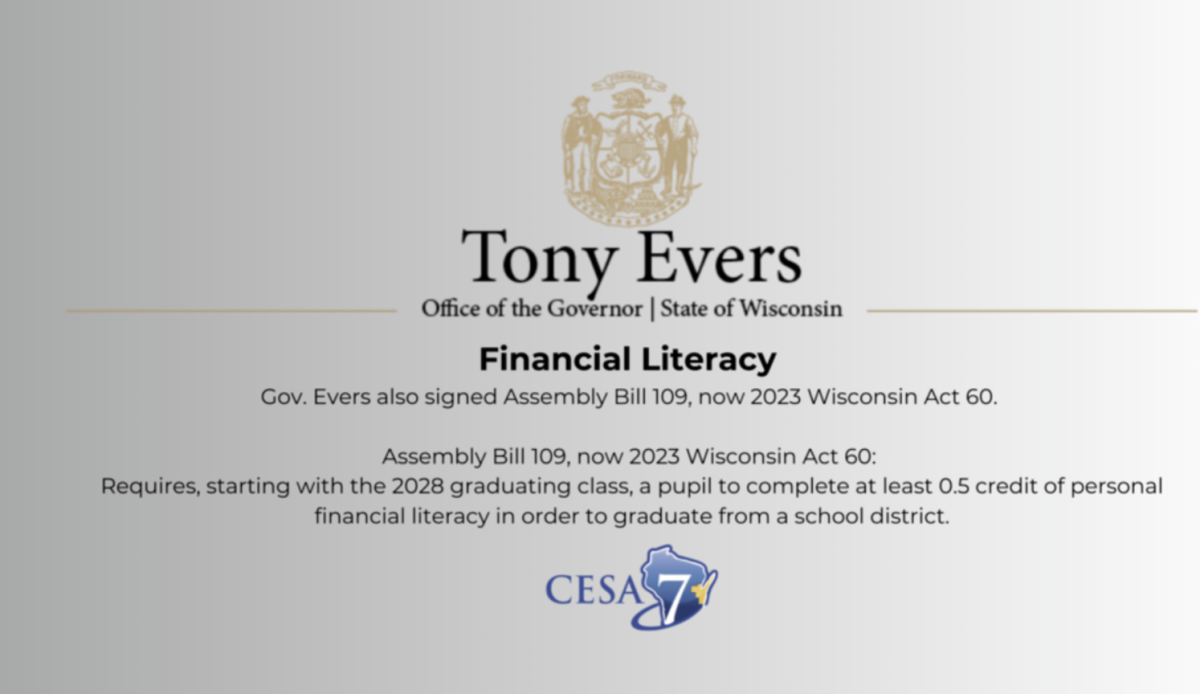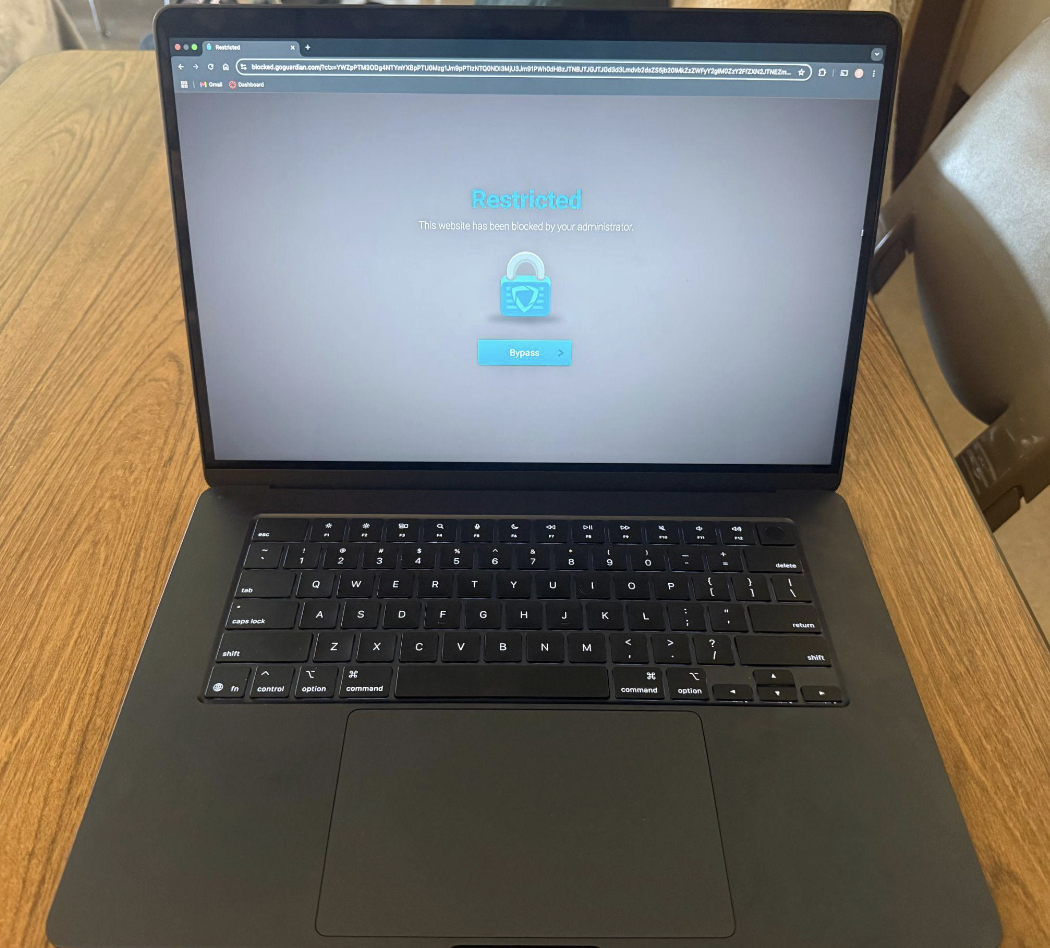On Dec. 6, 2023, Wisconsin Governor Tony Evers signed into law Wisconsin Act 60, a bill requiring all high school students in Wisconsin in the Class of 2028 and later to complete a half-credit of personal financial literacy to receive a high school diploma. This bill was signed as part of Evers’ “Do the Math” initiative, designed to run from 2023 until 2025.
In an article from the Milwaukee Journal Sentinel, Evers expressed his reasoning for the bill, stating “We have to make sure our kids have the tools and the skills to make smart financial and budgeting decisions to prepare for their future, so ensuring our kids have strong financial literacy is essential to setting them up for success as adults.”
While this requirement is new to Wisconsin high schools, it is not however new to the United States. According to the Milwaukee Journal Sentinel, Wisconsin is the 24th state in the United States to pass this type of bill, alongside states like Minnesota, Indiana, Connecticut, and Louisiana, along with several others.
Brandn Lindsey, personal finance and business teacher, believes this was one of the factors for Wisconsin passing the bill: to join a portion of the country in requiring personal financial literacy education.
“I think Wisconsin passed this bill for several reasons: parents were asking for it, 23 states had already passed something similar and the content includes things that are very relevant to students now,” Lindsey explains.
Fortunately for Lindsey, along with business teacher Margaret Sabin, the curriculum for personal finance classes will not be affected very much, if at all, by this recent bill.
“There won’t be very many changes to the curriculum, but we will still be looking to add more relevant content and looking for the best resources as the years go on. However, Sabin and I will have to collaborate more and make sure we are doing similar things with tests, quizzes, essential questions, and rigor between honors and on-level due to more students taking the classes,” Lindsey says.
Though personal financial literacy has not been required at MTSD’s lone high school, all sixth- grade students at Steffen and Lake Shore middle schools are required to take a financial literacy course as part of their related arts. Matthew Joynt, superintendent of the MTSD, has
worked to provide opportunities for students to obtain a greater financial literacy during their time in the district.
“The MTSD has been a strong proponent of financial literacy for a long time. Wisconsin’s state standards for personal financial literacy have been adopted and noticed by the district every school year,” Joynt states. Joynt also expressed his support for the bill, stating that “our
students must develop into adults with strong personal finance skills. Developing sound financial habits helps people live healthier, happier, more productive, and secure lives.”
According to the New York Times and a study by Dr. Carly Urban and others at Champlain College, personal financial instruction greatly benefits students in present and future times. “High school financial instruction overwhelmingly improves credit scores, lowers loan
delinquency rates and reduces the use of risky services like payday lending. It also leads more students to low-interest college financing and away from high-interest loans, and increases repayment rates for first-generation students and from low-income families,” Dr. Urban reports
(New York Times). However, in another recent study by Melody Harvey, an assistant professor from the University of Wisconsin-Madison, it was found that financial literacy education in high school has little to no impact on retirement savings in the future (New York Times).
These effects have already been seen by Keaton Lewis and Lucas Wirth, both juniors currently enrolled in personal finance courses.
“Taking a finance class has helped me further extend my knowledge on investing, filing my taxes, writing a check, and keeping up to date on how to save early so I will be able to retire early on so I will be able to retire later on. I would recommend a finance class to all Homestead students because it teaches you the basic needs of how to retire early, file your taxes and be able to write checks and be dependent on yourself,” Lewis states.
Wirth adds, “This class has really helped me understand how money and economics work, and how I can be prepared to
make smart financial decisions in the future.”








